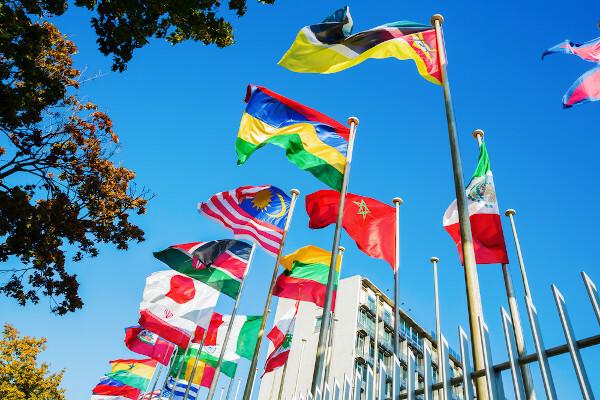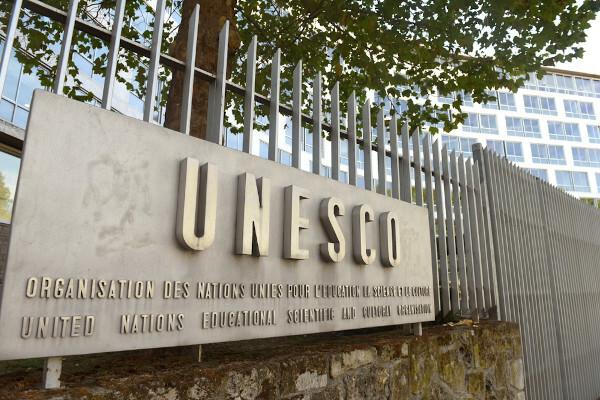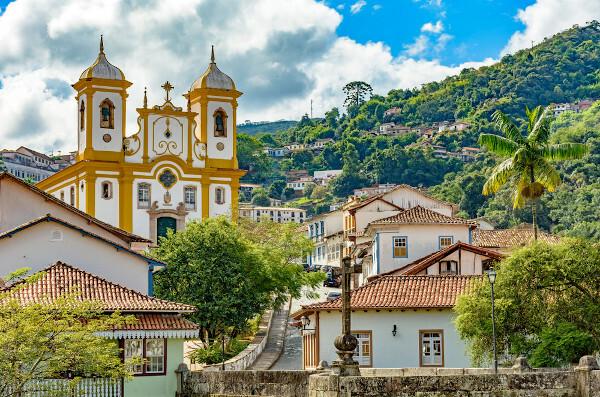A Unesco, United Nations Educational, Scientific and Cultural Organization, is a UN specialized agency headquartered in Paris, France. It was founded in 1945 with the purpose of assist in rebuilding the education system of allied countries in Second World War, but quickly expanded its scope and objectives. Today, with 193 members and 11 associates, it aims at international cooperation to guarantee peace and sustainable development, working in the areas of education, culture and science.
Check it out on our podcast: Is distance education for everyone?
Summary about UNESCO
UNESCO is the acronym for United Nations Educational, Scientific and Cultural Organization. It is a specialized agency of the UN headquartered in Paris (France).
It was founded on November 16, 1945 and has 193 member countries and 11 associated territories.
Its actions are aimed at promoting world peace through international cooperation projects in the areas of education, science and culture.
The body aims to meet the Sustainable Development Goals established in the 2030 Agenda.
Education is one of UNESCO's main work fronts.
The agency is also responsible for listing natural or built sites, buildings, monuments, natural landscapes and other World Heritage Sites.
Installed office in Brazil in 1964 and began to operate effectively in 1972. Today, several projects are developed in the country in partnership with government, civil society and private companies.
What is Unesco?
The United Nations Educational, Scientific and Cultural Organization, or UNESCO, is one of the specialized agencies of the United Nations (UN). It aims to promotion international peace through cooperation in the areas of education, science and culture. In addition, Unesco works to achieve the Sustainable Development Goals that have been established since 2015 in the UN 2030 Agenda.
Unesco was Founded on November 16, 1945, shortly after the end of World War II. Its headquarters are located in the city of Paris, the French capital.
What is UNESCO's role?
UNESCO's actions are based on solidarity moral and intellectual, valuing dialogue and mutual understanding. This is because, as explained by the agency itself, only economic and political arrangements are not enough to ensure peace and continuous and genuine support for individuals.
The agency's function is centered on development of projects and initiatives in partnership with other international agencies, States, governments of different territorial spheres, non-governmental organizations and companies.
UNESCO helps in implementation of public policies aiming at broad access to quality education, reduction of poverty and social differences and gender, sustainable development, improving and advocating science, protecting the cultural heritage and promotion of culture from the most diverse origins, and the Ensuring the sharing of ideas and freedom of expression, which is described by Unesco as a fundamental right and condition for democracy and development.
Read too:HDI — identifier of the degree of development of a given society
Unesco Member States
The Unesco framework has 193 member states and 11 associate members. Members are mostly islands and other autonomous territories such as Macau (China), the British Virgin Islands, New Caledonia and Curacao. Brazil has been a member of UNESCO since November 4, 1946.
The agency admits countries and territories that are not part of the UN. For this, there must be a recommendation from the executive committee, together with approval by a majority vote at the General Conference of UNESCO. A Palestine is one of those cases.

How does UNESCO work?
In order to fulfill its mission and objectives, UNESCO operates on several work fronts:
education;
natural Sciences;
oceanography;
humanities and social sciences;
culture;
communication and information.
The agency also established what it called a global priorities and their target groups. UNESCO's two priorities today are:
Promotion and guarantee of gender equity, based on the idea that gender violations are violations of human rights, which is one of the objectives of the 2030 Agenda;
Actions in the countries of Africa, based on the Agenda 2063 of the African Union, which aims to guarantee development and peace on the continent, in addition to the goals proposed in the 2030 Agenda.
already the groups defined as targets or priorities by Unesco are those for which specific actions will be aimed and with which partnerships will be established, in order to ensure their culture and their rights, assist them in various challenges they face on a daily basis and promote development in the work fronts listed previously. These groups are the indigenous populations, the inhabitants of small islands and underdeveloped countries and young people between 15 and 24 years of age, a range defined and standardized by Unesco.
Unesco and world heritage
UNESCO operates in the cataloging of natural or artificial sites, buildings and monuments as a World Heritage Site. By definition, the selected locations have great historical, scientific, aesthetic, anthropological and cultural value for humanity, and tipping (the name given to the act of transforming an object or place into heritage) helps in its preservation and protection against degradation, wear and tear associated with the passage of time and environmental devastation.
There are, therefore, two types of world heritage: the cultural, which is made up of buildings, archaeological sites and monuments, and the natural, which encompasses habitats threatened with extinction, biological and geological formations and natural landscapes.
Know more:Material culture and immaterial culture — understand these different cultural modalities
UNESCO and Education
A Education is one of UNESCO's main areas of action., a fundamental right and a key issue for achieving other goals, such as peace, poverty eradication and sustainable development. In this sense, the agency operates in a wide range of areas, assisting its members in policy implementation that aim to guarantee an inclusive and quality education system, from preschool to higher education.
Some of the areas in which UNESCO works are:
health and wellness education;
education and gender equality;
emergency education;
education for sustainable development;
inclusion On education;
evaluation of results and learning;
literacy;
school violence;
bullying.
→ Video class on public policies
History of Unesco
In the midst of World War II, which lasted from 1939 to 1945, some of the European nations involved were looking for a way to re-establish their educational system in the post-war period, since, because they were involved, they were more affected by the conflict. In view of this, in 1942, the Conference of Allied Ministers of Education (cam) on UK. The meeting was intended to discuss the reconstruction of the educational structure of the allied countries at the end of the conflict. A year later, discussions advanced, and there was already talk of the creation of an international cooperation body to deal with issues associated with education and culture.

With the adhesion of new countries to the proposal, a United Nations Conference for the Creation of an Educational and Cultural Organization. The event took place in London, capital of the United Kingdom, between the 1st and 16th of November 1945, and was attended by 44 countries. On the last day, the Constitutive Act of Unesco was signed by 37 nations. After ratification by 20 countries, it entered into force on November 4, 1946.
Unesco in Brazil
Brazil was one of the signatory countries of the UNESCO Constitutive Act, which entered into force in 1946. The agency operates in the country through the UNESCO Representation in Brazil, which was established on June 19, 1964 and which performs its function in the region of Latin America and Caribbean. The UNESCO office in the country is headquartered in the capital, Brasilia, and has been active since 1972..

The first Unesco work plan in Brazil was signed in 1993 and it was a partnership with the Ministry of Education (MEC) in the elaboration of the Ten Year Plan of Education for All. Since then, projects have been developed in several areas, such as education, culture, science, communication and information. A total of 16 projects are in effect.
Furthermore, UNESCO classified 23 World Heritage Sites in Brazil, with 15 cultural heritage sites, seven natural heritage sites and one mixed heritage site (Paraty and Ilha Grande, in Rio de Janeiro). Among the cultural heritage sites are the city of Ouro Preto (MG), the historic center of Salvador (BA), the Serra da Capivara National Park (PI) and the city of Brasília (DF). Protected areas of the Cerrado, such as the Veadeiros Plateau and the Emas National Park (GO), the Central Amazon, the Pantanal Conservation Area and the Iguaçu National Park (PR) are considered natural heritage sites.
Image credits:
[1] Maxim Ermolenko / Shutterstock.com
[2] bumble dee / Shutterstock.com
By Paloma Guitarrara
Geography Teacher
